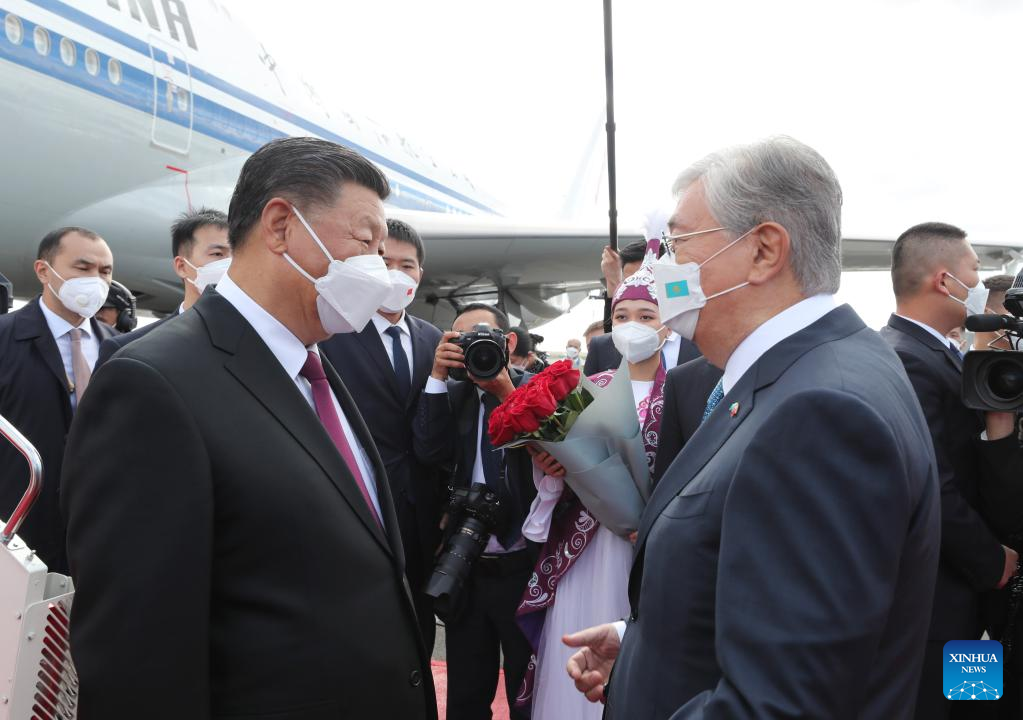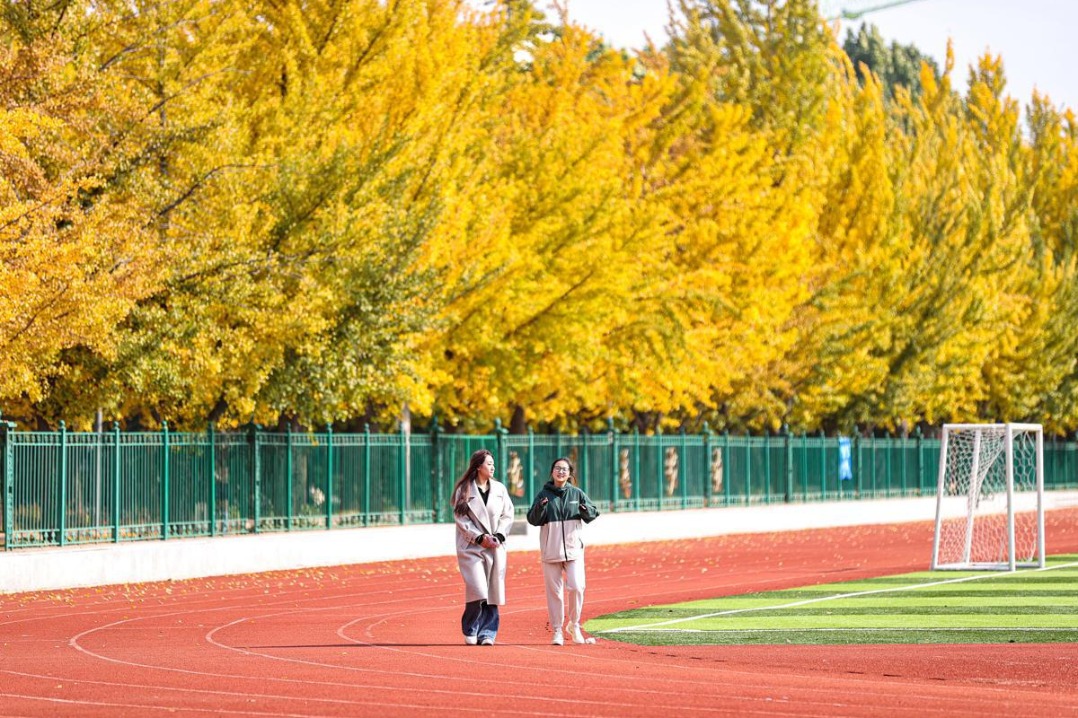Enthusiasm at Nur-Sultan's Confucius Institute soars


President Xi Jinping's state visit to Kazakhstan is set to boost trust and understanding between people of the two countries, said Yang Lei, Chinese director of Eurasian National University's Confucius Institute in Nur-Sultan.
Yang came to work at the institute at the end of 2017.
"It was a cold November. The temperature was -30 C," Yang recalled. "But I could feel the warmth Kazakh people had toward learning about the Chinese language and culture."
The institute, which opened in 2007, holds events and activities that attract many Kazakhs, including Chinese-language recitation contests, Chinese Bridge speech competitions for university and high school students, Chinese book donations and picture exhibitions. It is the first of its kind in the country and currently has four teachers from China and two administrators from Kazakhstan.
Even the COVID-19 pandemic did not dampen enthusiasm for the institute's programs. From 2021 to 2022, it continued to offer 11 classes attended by about 240 local students. In addition, over 2,300 Kazakhs participated in roughly three dozen cultural activities that it organized in Nur-Sultan, Yang said.
Yang also pointed out that local TV stations are broadcasting more Chinese shows and films.
The romantic comedy series Go La La Go!; the documentary Days and Nights in Wuhan, about the city's fight against the COVID outbreak; and the first Sino-Kazakh coproduction, the movie Composer, based on the life of Chinese musician Xian Xinghai, have all become popular in Kazakhstan.
Meanwhile, more Chinese companies, such as Vivo, Xiaomi, Huawei and Sinopec, have entered the country's market.
Kazakhstan has been a cradle of the Belt and Road Initiative since Xi proposed it during his state visit in 2013. And Kazakhstan was among the first countries to show enthusiasm for the BRI.
This has, in turn, led to more people-to-people exchanges that have inspired people like 14-year-old Tazhmurat Alinaai, who gave herself the Chinese name Ai Li, to learn Chinese for over a year.
She has also started practicing Chinese calligraphy and hopes to study medicine at Peking University in Beijing to become a doctor.
The girl describes herself as a chi huo, which means "foodie" in Chinese, and is especially fond of hotpot, "because I love spicy food".
"I think Chinese culture is interesting, and China has a long history," she said.
"My dream is to go to China and know more about the country."
Sat Aslanbek has continued to learn Chinese at the Confucius Institute in Nur-Sultan since 2020 after studying in Beijing for years.
Aslanbek said more young Kazakhs are studying in China and that the two countries share similar development philosophies.
Kazakhstan recently introduced a policy allowing Chinese citizens to stay in the country visa-free for two weeks.
Yang quoted an old Chinese saying to describe relations: "A close neighbor is better than a distant relative."
- China recovers 16b yuan in misused healthcare funds
- Former Beijing official expelled from Party for serious violations
- China records fall in youth joblessness
- Robot dogs get ready for new job
- Seawater intrusion incurs waterlogging on China's northern coasts
- Foreign teachers and students discover the real Xizang





































